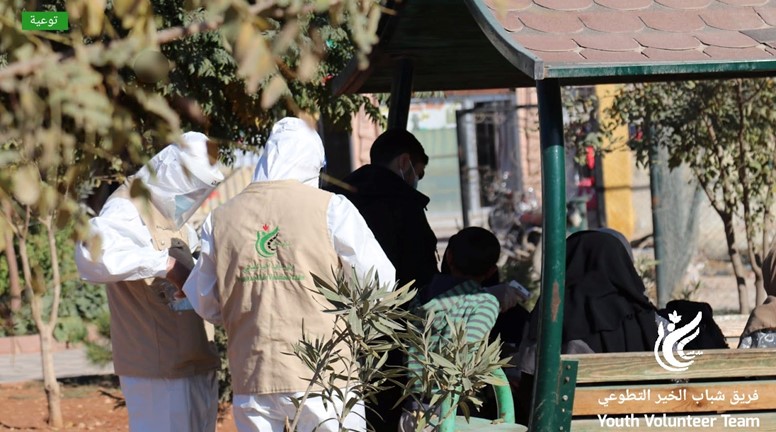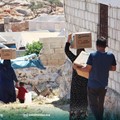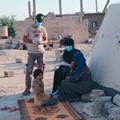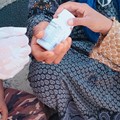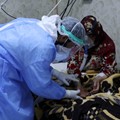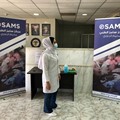Implementation of a campaign against the Covid 19 virus in the city of Azaz
Implementation of a campaign against the Covid 19 virus in the city of Azaz
campaign includes
Definition of covid 19 virus
A new virus called severe acute respiratory syndrome coronavirus 2 (SARS-CoV-2) has been discovered and is the cause of an outbreak in China in 2019. The resulting disease is called coronavirus disease 2019 (COVID-19).
In March 2020, the World Health Organization declared COVID-19 a global pandemic. Public health groups, including the US Centers for Disease Control and Prevention and the World Health Organization, are working to monitor the pandemic and publish the latest developments on their websites. These groups issue recommendations to prevent the spread of the virus.
#How_covid_virus_(Corona) spreads
Data have shown that the virus that causes coronavirus disease 2019 (COVID-19) is transmitted mainly from person to person through close contact (within approximately 6 feet or 2 metres). The virus spreads through the respiratory droplets that come out of a person infected with the virus when he coughs, sneezes, breathes, sings or talks. A person close to him may inhale the spray or get it into his mouth, nose or eyes.
In some cases, the Covid-19 virus can spread through a person's exposure to small droplets of droplets that remain suspended in the air for several minutes or hours, and this is called aerosol transmission. But it is not yet known how common the virus is to spread in this way.
The virus can also be spread if a person touches a surface or object covered by the virus and then touches their mouth, nose or eyes, but this is not the main way it is spread.
#What are the symptoms of COVID-19?
Symptoms of COVID-19 range from very mild to severe. Some people do not show symptoms. The most common symptoms are fever, cough and fatigue.
Other symptoms include shortness of breath, muscle aches, chills, sore throat, headache, chest pain, and loss of taste or smell. This list does not include all symptoms. Other, less common symptoms have been reported. Symptoms appear between 2 and 14 days after exposure to the virus.
#Can_Covid_19_virus_ be prevented?
The US Food and Drug Administration has authorized emergency use of some COVID-19 vaccines in the United States. The U.S. Food and Drug Administration has approved the use of the Pfizer-Biontech COVID-19 vaccine, which became known as Comirnaty, to prevent people 16 years of age or older from getting COVID-19. Vaccines can prevent you from getting COVID-19 or protect you from exposure. Serious complications if infected with the Covid virus
What can I do to avoid injury?
If you haven't received the COVID-19 vaccine, there are several steps you can take to prevent yourself from contracting COVID-19 and avoid passing it on to others. The Centers for Disease Control and Prevention and the World Health Organization recommend the following precautionary measures:
Maintain at least 6 feet (2 meters) distance between you and other people who aren't members of your household.
Avoid gatherings and closed places with poor ventilation.
Wash your hands often with soap and water for at least 20 seconds, or use an alcohol-based hand sanitizer with at least 60% alcohol.
Wear a mask in public, especially when social distancing is difficult for you.
Cover your mouth and nose with your elbow or tissue when coughing or sneezing. Dispose of used tissues. Then wash your hands right away.
Do not touch your eyes, nose or mouth.
Make sure to clean and disinfect frequently touched surfaces every day.
If you have a chronic medical problem and are more likely to develop serious complications, ask your doctor if there are other ways to protect yourself.

